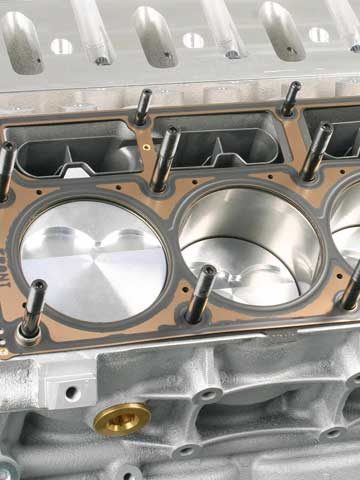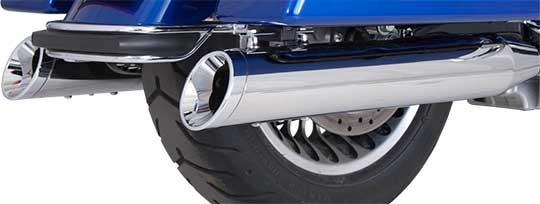Exhaust Manifold Studs Vs Bolts
Exhaust manifold studs are superior to bolts in several ways. First, they provide a more secure connection between the manifold and the engine block. Second, they allow for thermal expansion of the exhaust manifold, which can cause cracking and leaks over time.
Third, studs are less likely to loosen or fall out than bolts, making them ideal for high-performance applications. Finally, studs are easier to remove and replace than bolts, making them ideal for repairs and modifications.
Exhaust manifold studs and bolts are both used to hold the exhaust manifold in place. However, there are some key differences between the two. Exhaust manifold studs are typically made of stainless steel, while bolts are usually made of carbon steel.
Studs also have a higher tensile strength than bolts, meaning they can withstand more force before breaking. This makes them ideal for use in high-stress applications like exhaust manifolds. Bolts, on the other hand, are less likely to break but can become loose over time.
This can cause problems like leaks or even engine damage. When choosing between studs and bolts for your exhaust manifold, it’s important to consider the application and choose the option that best suits your needs.
SDPC Tech Tips: Head bolts vs. studs
Do Studs Hold Better Than Bolts?
There are a lot of variables to consider when deciding whether studs or bolts will provide a better hold. Some of the things you’ll need to think about include the type of material you’re fastening, the environment in which the fastener will be used, and the amount of force that will be applied to the fastener.
In general, studs tend to provide a better holding power than bolts because they can be manufactured with a tighter tolerance.
This means that there is less play between the threads on a stud, which makes it less likely for the stud to loosen over time. Additionally, studs can be inserted into drilled holes that are slightly smaller than their diameter, while bolts require an exact size match between the hole and bolt.
Another advantage that studs have over bolts is that they can be welded in place.
This provides an incredibly strong hold, particularly for applications where high loads or vibration might cause bolts to loosen over time. Of course, welding is not an option for all applications so it’s important to weigh this factor against your other needs before making a decision.
Ultimately, there is no definitive answer as to whether studs or bolts provide a better hold.
It depends on your specific application and what factors are most important to you. If you’re unsure which fastener would work best for your project, consult with an expert who can help you make the best decision possible.
What is the Advantage of Studs Over Bolts?
There are a few advantages that studs have over bolts. One is that they’re easier to install and remove, since you don’t have to thread them in and out. Another is that they provide a more even distribution of force, which can be important in some applications.
Finally, studs are less likely to come loose over time than bolts, making them a more reliable option overall.
Why Do Exhaust Manifolds Use Studs?
Exhaust manifolds are an important part of any engine, as they help to direct the exhaust gases away from the cylinders. In order to do this effectively, they need to be securely attached to the engine block. This is where studs come in.
Studs are essentially bolts that are used to hold things together. In this case, they are used to attach the exhaust manifold to the engine block. They need to be long enough so that they can go through both pieces of metal and also have a nut on the end so that they can be tightened down.
There are a few reasons why studs are used instead of bolts for this particular application. Firstly, studs are less likely to vibrate loose over time. This is because they have more surface area in contact with both the engine block and the exhaust manifold.
Secondly, it’s easier to get a good seal with studs than it is with bolts. This is important as you want your exhaust gases to flow smoothly through the manifold and out of the car.
Overall, using studs is just a better way of doing things when it comes to attaching an exhaust manifold onto an engine block.
It’s more secure and gives you a better seal, which results in improved performance from your engine overall.
Should I Put Anything Exhaust Manifold Bolts?
If you’re asking whether or not you should put anything on the exhaust manifold bolts, the answer is no. There’s no need to put any sort of lubricant or sealant on the bolts, and in fact doing so may actually cause more harm than good. The exhaust manifold bolts are designed to create a tight seal without any additional help, so putting something like Vaseline or WD-40 on them can actually make it harder for the bolts to do their job.

Credit: zzperformance.com
Bolts Instead of Exhaust Studs
If you’re like most people, the first time you heard about bolts instead of exhaust studs was probably in relation to some kind of performance upgrade. And while it’s true that bolts can provide a significant performance boost over studs, there are a few things you should know before making the switch.
For starters, bolts are much easier to remove and install than studs.
This is because they don’t require any welding or cutting – all you need is a wrench and some patience. Additionally, bolts are less likely to break or come loose than studs, thanks to their increased strength. And finally, bolts offer better heat resistance than studs, meaning your exhaust will stay cooler and last longer.
So if you’re looking for a quick and easy way to improve your vehicle’s performance, consider switching to bolts instead of exhaust studs. Just make sure you do your research first so you know what size and type of bolt is best for your application.
Studs And Bolts
When it comes to construction, there is a lot of talk about studs and bolts. But what exactly are they? And what is the difference between the two?
Studs are vertical members that are used to support loads in a structure. They can be made from wood, metal, or concrete, and are typically found in walls and ceilings. Bolts, on the other hand, are horizontal members that connect two pieces of material together.
They can also be made from wood, metal, or concrete, but are typically used to connect beams and columns.
Are Studs Stronger Than Bolts
When it comes to construction, both studs and bolts have their own set of advantages and disadvantages. In general, studs are stronger than bolts because they’re able to distribute weight more evenly. However, bolts are less likely to loosen over time, which makes them ideal for high-stress situations.
Conclusion
It is important to know the difference between exhaust manifold studs and bolts when working on your car. Studs are stronger and will not break as easily as bolts. Bolts can come loose and cause leaks.
If you are not sure which one to use, ask a professional mechanic.


